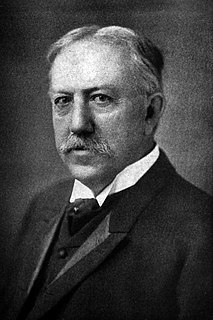A Quote by Daniel Kahneman
A general “law of least effort” applies to cognitive as well as physical exertion. The law asserts that if there are several ways of achieving the same goal, people will eventually gravitate to the least demanding course of action. In the economy of action, effort is a cost, and the acquisition of skill is driven by the balance of benefits and costs. Laziness is built deep into our nature.
Related Quotes
There is a fundamental law that the tissue of the human body will waste away through idleness and disuse. Conversely, muscles and vessel that are stressed grow and increase in capacity. This same basic law also applies to spiritual and intellectual growth and can be achieved only by continual nourishment and effort in day-to-day living.
Law, in its most general and comprehensive sense, signifies a rule of action; and is applied indiscriminately to all kinds of action, whether animate, or inanimate, rational or irrational. Thus we say, the laws of motion, of gravitation, of optics, or mechanics, as well as the laws of nature and of nations. And it is that rule of action, which is prescribed by some superior, and which the inferior is bound to obey.
You can get away with breaking all of the other rules at least once in a while, but you can't get away with breaking this one. Readers will accept almost anything from you if you don't make them feel they have wasted their time and money. Remember, you can bore readers in a lot of different ways. It doesn't necessarily take a dearth of action; too much action can get you the same result. Everything in writing, like in life, requires balance.
The physiological law of Transfer of Energy is the basis of human success and happiness. There is no action without expenditure of energy, and if energy be not expended the power to generate it is lost. This law shows itself in a thousand ways in the life of man. The arm which is not used becomes palsied. The wealth which comes by chance weakens and destroys. The good which is unused turns to evil. The charity which asks no effort cannot relieve the misery she creates.
The first fundamental law of the universe is the law of three forces, of three principles, or , as it is often called, the law of three. According to this law every action, every phenomenon in all worlds without exception, is the result of a simultaneous action of three forces- the positive, the negative, and the neutralizing.
People take it for granted that the physical world is both ordered and intelligible. The underlying order in nature - the laws of physics - are simply accepted as given, as brute facts. Nobody asks where they came from; at least not in polite company. However, even the most atheistic scientist accepts as an act of faith that the universe is not absurd, that there is a rational basis to physical existence manifested as law-like order in nature that is at least partly comprehensible to us. So science can proceed only if the scientist adopts an essentially theological worldview.
There is not going to be, we can be quite certain, there's not going to be any action on reducing greenhouse gas emissions by China or India or Indonesia or Brazil unless all developed countries are making a major effort. It will still be a big job to get them in, even if we are all making the effort. But our making the effort is a necessary condition.
To permit every lawless capitalist, every law-defying corporation, to take any action, no matter how iniquitous, in the effort to secure an improper profit and to build up privilege, would be ruinous to the Republic and would mark the abandonment of the effort to secure in the industrial world the spirit of democratic fair dealing.
No human face is exactly the same in its lines on each side, no leaf perfect in its lobes, no branch in its symmetry. All admit irregularity as they imply change; and to banish imperfection is to destroy expression, to check exertion, to paralyze vitality. All things are literally better, lovelier, and more beloved for the imperfections which have been divinely appointed, that the law of human life may be Effort, and the law of human judgment, Mercy.





































